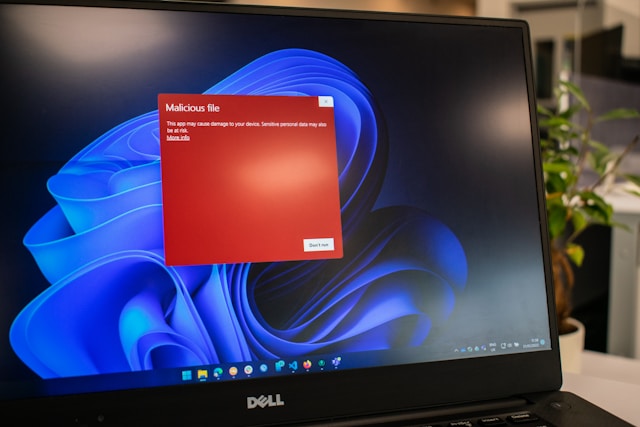Antivirus software works by detecting, preventing, and removing malicious software, commonly referred to as malware, from computers and devices. Here’s simply about how antivirus software operates:
Signature-Based Detection:
- Database of Signatures: Antivirus software maintains a database of known malware signatures. These signatures are unique identifiers or patterns that match specific malware strains.
- Scanning: The antivirus scans files, programs, and other data on your computer against this database of signatures.
- Detection: If the antivirus finds a file or program that matches a signature in its database, it identifies it as malware.

Heuristic Analysis:
- Behavioral Patterns: Antivirus software also uses heuristic analysis to detect malware based on suspicious behavior or characteristics. It looks for activities that are common among malware, even if they don’t match known signatures.
- Sandboxing: Some antivirus programs execute suspicious files in a controlled environment (sandbox) to observe their behavior without risking harm to the actual system.
Real-Time Protection:
- Monitoring: Antivirus software continuously monitors the system for suspicious activities or files that could indicate malware presence.
- On-Access Scanning: Files are scanned in real-time as they are accessed, opened, or executed to prevent malware from infecting the system.
Removal and Quarantine:
- Quarantine: When malware is detected, the antivirus software may quarantine the infected files. Quarantine isolates them from the rest of the system to prevent further damage while allowing the user to review and decide what action to take.
- Cleaning: The antivirus software attempts to remove or repair the malware-infected files if possible, restoring them to a safe state.
Updates and Improvements:
- Virus Definition Updates: Antivirus software regularly updates its database of malware signatures and heuristic algorithms to detect new and emerging threats.
- Software Updates: Updates also include patches and improvements to the antivirus software itself to enhance its effectiveness and address vulnerabilities.
Additional Features:
- Firewall: Many antivirus programs include a firewall component to monitor and control network traffic, preventing unauthorized access and protecting against network-based attacks.
- Browser Protection: Some antivirus software offers browser extensions to block malicious websites and phishing attempts.
Antivirus software is a critical component of cybersecurity, helping to protect computers and devices from a wide range of malware threats, including viruses, worms, Trojans, ransomware, spyware, and adware. Its effectiveness depends on the timeliness of updates, the comprehensiveness of its detection methods, and the user’s proactive engagement in maintaining a secure computing environment.

